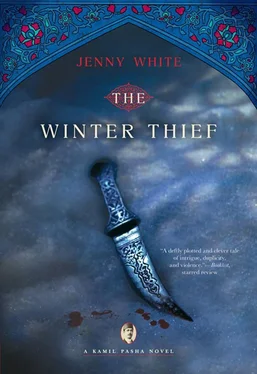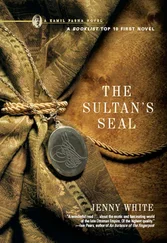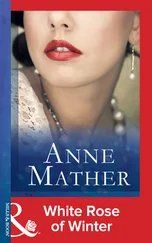Jenny White - The Winter Thief
Здесь есть возможность читать онлайн «Jenny White - The Winter Thief» весь текст электронной книги совершенно бесплатно (целиком полную версию без сокращений). В некоторых случаях можно слушать аудио, скачать через торрент в формате fb2 и присутствует краткое содержание. Жанр: Исторический детектив, на английском языке. Описание произведения, (предисловие) а так же отзывы посетителей доступны на портале библиотеки ЛибКат.
- Название:The Winter Thief
- Автор:
- Жанр:
- Год:неизвестен
- ISBN:нет данных
- Рейтинг книги:5 / 5. Голосов: 1
-
Избранное:Добавить в избранное
- Отзывы:
-
Ваша оценка:
- 100
- 1
- 2
- 3
- 4
- 5
The Winter Thief: краткое содержание, описание и аннотация
Предлагаем к чтению аннотацию, описание, краткое содержание или предисловие (зависит от того, что написал сам автор книги «The Winter Thief»). Если вы не нашли необходимую информацию о книге — напишите в комментариях, мы постараемся отыскать её.
The Winter Thief — читать онлайн бесплатно полную книгу (весь текст) целиком
Ниже представлен текст книги, разбитый по страницам. Система сохранения места последней прочитанной страницы, позволяет с удобством читать онлайн бесплатно книгу «The Winter Thief», без необходимости каждый раз заново искать на чём Вы остановились. Поставьте закладку, и сможете в любой момент перейти на страницу, на которой закончили чтение.
Интервал:
Закладка:
“Look more closely and you’ll find not foolishness, but wisdom,” Kamil, offended, told him.
Huseyin laid his hand across his heart. “I apologize.” He nodded at his glass. “Blame it on the grape or on a bad upbringing, but I have no control over my tongue. I would rather cut it out than say a bad word about my honored wife, whom I respect more than myself.” He looked into Feride’s eyes. “Am I forgiven?”
Feride lowered her eyes, then nodded briefly.
Huseyin turned again to Kamil. “Do you think the British are behind the weapons shipment?”
“It makes no sense,” Kamil observed. “If the British wanted to arm the Armenians on the Russian border, it would be much easier to send the weapons through Syria. Anyway, the British would never help the Armenians if that meant helping the Russians.”
“True enough. The British are devious, but not suicidal. The socialists, on the other hand, they’re an unpredictable lot.” Huseyin took another sip of wine.
“Socialists?” Kamil exclaimed. “Isn’t that rather far-fetched?”
“They have alliances all over Europe, so you’re not dealing with just Armenians or Greeks or Russians. You’re dealing with all of them, plus the Irish, the Americans, and Allah knows who else has swallowed their ridiculous ideas.” He held out his glass. “You should try this. It’s good. From my favorite vineyard in Ayvalik. If you like it, I’ll send you a case.”
It was a gesture of peace. Kamil allowed the servant to fill his glass and took a sip, then nodded his approval. He noticed Feride drinking deeply from her own glass and thought he saw the glint of tears in her eyes, but he didn’t know what to say. She would have to find her way in this marriage. He gave her a sympathetic smile, then turned back to Huseyin. “What’s the reaction in the palace to the weapons?”
“What do you think? Our great padishah has been convinced by his advisers that other nations have riddled us with spies like mold in a loaf of bread and that he needs a secret service to counter their influence. For now, the sultan has set up a new security force called Akrep as a branch of the secret police, but mark my words, Akrep is the first step in establishing a Teshkilati Mahsusa, a vast secret service like the one the British have.” Huseyin took another sip from his glass, letting the wine roll on his tongue before swallowing. So out of character, Kamil noted, for a man who devoured his food with wolfish abandon. “Akrep is going to ferret out these revolutionary cells, unlike the secret police who just spy on everybody and write reports. Akrep is going to go after these people, the Armenians, the Greeks, the socialists, and all their foreign collaborators.”
Any expansion of the secret police alarmed Kamil, much less the formation of a new security network reporting directly to the sultan.
“Akrep means scorpion. The scorpion that hides in your shoe,” Feride mused. “Or is it an acronym? Does it stand for something?”
“I have no idea.” Huseyin threw down his napkin and got up. He gave Feride a kiss on the cheek. “I’ve got to go. A meeting.”
“At this time of night?” Feride asked. Kamil saw the light go out in her eyes.
“Business is best conducted over a meal with raki, my dear wife. That way, your opponent’s brain is in his stomach and you can take advantage of him.” He patted his ample stomach. “I’ve already eaten, but that’s never been an impediment. I eat in the line of duty.”
“Take Vali, Huseyin,” Feride urged, referring to their driver. “I don’t like it when you go out drinking and use a hired carriage.”
“Wine is king and raki is queen, and a good marriage they make. Like ours.” He leaned over and kissed her cheek. “Don’t worry, my rose.”
“When will you be home?”
“I’m not sure.” He kissed her again. “See you, brother-in-law.” Huseyin winked at Kamil and strode out of the room.
Kamil and Feride said nothing for a while, busying themselves with their coffee cups. Then Feride gave a self-conscious laugh and said, “You’ve resisted all my attempts to marry you off, dear brother. But maybe it’s better that way, to marry only when you’re tired of chasing about.”
“I don’t ‘chase about,’ Ferosh,” Kamil responded with mock indignation.
Feride wagged her head and intoned, “Everything reaches my ears.”
Kamil was glad to see a spark in her eyes. She laughed, revealing a row of pearllike teeth.
Then she surprised him by saying, “Elif needs time, brother. She looks happy enough with her art and she loves teaching. But she’s still mourning.” Feride twisted her napkin. “Her example makes me impatient with my own foolish fears.”
Kamil went to her side. He pulled his thumb across her forehead as he had done as a child to soothe her and was rewarded by a sad smile. “I’m always here, Ferosh.”
4
When the blast hit, the first thing Vahid looked at was the porcelain ball hanging from a chain in the middle of the ceiling. His mother continued tatting in her chair by the stove, undisturbed by the noise. He wondered if she was going deaf, although she seemed to hear what she wanted to hear. Her eyes were clouding over with cataracts, slowly blinding her. She didn’t need to see in order to wrest tiny shapes from the thread that slipped through her still-nimble fingers. Almost every surface in the small house was decorated with doilies, laces, and the embroidered cloths she had brought as part of her dowry when she married Vahid’s father. His death, like his life, had left no imprint on the house at all.
The decorative ball was useful as a quick earthquake indicator. Tonight it hung unmoving from the painted ceiling, a still fulcrum in a field of peeling stars and flowers. Not an earthquake then, but a powerful explosion somewhere in the city. He checked the time. Eight o’clock. He opened the window, letting in the smell of damp charcoal and wood fire. A foul-smelling yellow mist insinuated itself into the room. Flakes of snow settled on his sleeve.
To the northeast, above the dark hulks of houses, the sky was abnormally bright. He heard shouts in the distance. Beneath his window, a group of men stood talking excitedly. “The bank is on fire,” he heard one of them say. Vahid marveled at the speed of gossip. The Ottoman Imperial Bank was on the other side of the Golden Horn, the inlet that divided the old city from the new. Certain that this was no ordinary fire, Vahid drew on his coat and boots.
“Are you going?” his mother asked in a reedy voice.
“Yes,” he responded curtly, thinking, as always, that it was obvious that he was going, but feeling guilty about his annoyance. He descended into the dark street.
He followed the commotion down the hill toward the Eminönü pier. A pall of white smoke rose from the opposite shore. He pushed his way through the crowd across the Galata Bridge. In Karaköy Square, men with flares ran about, shouting. As he approached the bank, torches were no longer necessary. The fire was at a wooden taverna across from the bank. The blaze was enormous. Both floors must have been crowded with diners, he thought. Vahid never frequented this taverna, popular with bankers and bureaucrats from the Sublime Porte, the center of government just across the Golden Horn.
The fire brigade pumped water from a tank into the flames. When the fire died down sufficiently, men dashed inside and began to pull out bodies. Those still alive were laid on a covered cart. The air stank of charred flesh. Vahid pulled a handkerchief from his pocket and held it over his mouth. He surmised the victims were rich men making deals or entertaining their mistresses. Many of the corpses were naked-their clothes had burned off-mouths cooked open, blackened hands curled in supplication. Snowflakes settled on them, melting immediately. The cart carrying the wounded began to groan up the steep hill.
Читать дальшеИнтервал:
Закладка:
Похожие книги на «The Winter Thief»
Представляем Вашему вниманию похожие книги на «The Winter Thief» списком для выбора. Мы отобрали схожую по названию и смыслу литературу в надежде предоставить читателям больше вариантов отыскать новые, интересные, ещё непрочитанные произведения.
Обсуждение, отзывы о книге «The Winter Thief» и просто собственные мнения читателей. Оставьте ваши комментарии, напишите, что Вы думаете о произведении, его смысле или главных героях. Укажите что конкретно понравилось, а что нет, и почему Вы так считаете.












